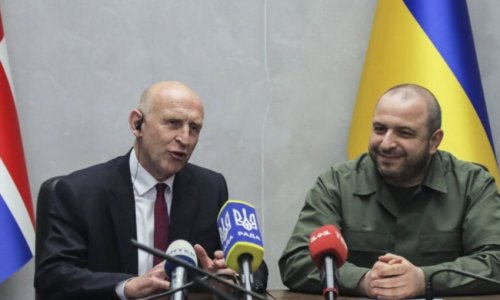According to a defector from the ranks of the Islamic State in Iraq and Syria (ISIS) -- whose stronghold in the Syrian town of Raqqa punishes smokers and insists women wear a veil -- the jihadist group runs a series of internet welcome chat groups to begin the process of indoctrinating and filtering potential recruits from outside Syria.The defector agreed to an interview with CNN but wanted to hide his identity, but his story was ratified by a witness and his extensive knowledge of life inside Syria under the ISIS. He fled Syria when two of his relatives were killed in the violence, and is now hiding in Turkey. He said that European recruits were more sought after and treated in a different class by the recruiters."There was special treatment for the Europeans," he says. "One British guy said he was called Ibrahim, then told me he was from Manchester. One asked my emir [his unit's head] if he should fight in his own country, or come to Syria. He was told if God doesn't give you martyrdom in Syria, then he could wage war in his own country."Western officials have told CNN they are deeply concerned at not only the growing numbers of Western passport holders who have traveled to Syria to fight, but also the potential for more and more of these radicals to return to the West and continue that jihad through acts of domestic terrorism.Hundreds of British and French citizens have traveled to Syria, according to multiple official estimates, and several have returned. A Briton was recently convicted of terror offenses after spending time inside Syria with radical groups. U.S. officials have become increasingly concerned about American passport holders attempting the same, and anxieties have been amplified by the U.S. State Department confirming that Moner Mohammad Abu-Salha, from Florida, became the first American citizen to die as a suicide bomber in Syria last month.Recruiters are the gateway from the West to ISIS. The first contact is made over Twitter, when the recruit might send a message to ISIS's Twitter accounts saying "Can I talk to Hakim," for example, the source said.The Twitter account is then followed back, enabling a direct message to be sent with the e-mail address of the ISIS recruiter. The conversations that continue, the defector said, over Google Chat, Skype and Twitter, are extensively monitored by the emirs and supervisors of the recruiting unit. While the defector didn't speak English, he says he used online translating apps to talk to French and English recruits."There are questions I am allowed to answer," he said, "and then things I must ask my supervisor. Specific questions about religion. I have to get their permission to message anyone. I can't talk on Skype, as everything is written down, so they can monitor everything."The defector added his supervisor often dealt with the European recruits.He said the online chats, intended to provide basic information about life under the ISIS caliphate, or strict Islamist state, lasted about two weeks, and sometimes each chat could last hours. He said some of the potential recruits asked curious questions. "I remember one guy asked me for a video of a public execution", he said, "but one that's not been put online before. Strange ones too about marrying Syrians girls. I got mad once when I was asked if someone could marry three or four girls."When the recruit is ready to come to Syria, a different part of ISIS assists, and the defector said he was not supposed to meet those he helped recruit. He said the recruitment was first aimed at filling ISIS ranks inside Syria, and that the return of these radicals to their home countries was carefully regulated by the emirs, or senior commanders, of ISIS. Each recruit's passport was taken from him on arrival and the defector recalls seeing dozens of foreign passports held in the same office, and overhearing one foreign recruit discussing how he might return home to act as a recruiter.The defector was himself jailed for one day by ISIS for overstepping the permitted topics of conversation with recruits, and says he fled Syria with the clothes on his back after his relatives were killed. He says he still fears for his life and has given his phone number to only three people. "I didn't think ISIS lied to me," he says, "but they did play with my mind."(CNN)Bakudaily.az
Syrian jihadists using Twitter to recruit foreign fighters
World
21:00 | 04.06.2014

Syrian jihadists using Twitter to recruit foreign fighters
It starts with a tweet. The recruit has been slowly and carefully chosen from his local community -- perhaps at a mosque, or gym, or cafe -- by an al Qaeda recruiter, aiming to send a Westerner to fight alongside radicals in Syria.
Follow us !










